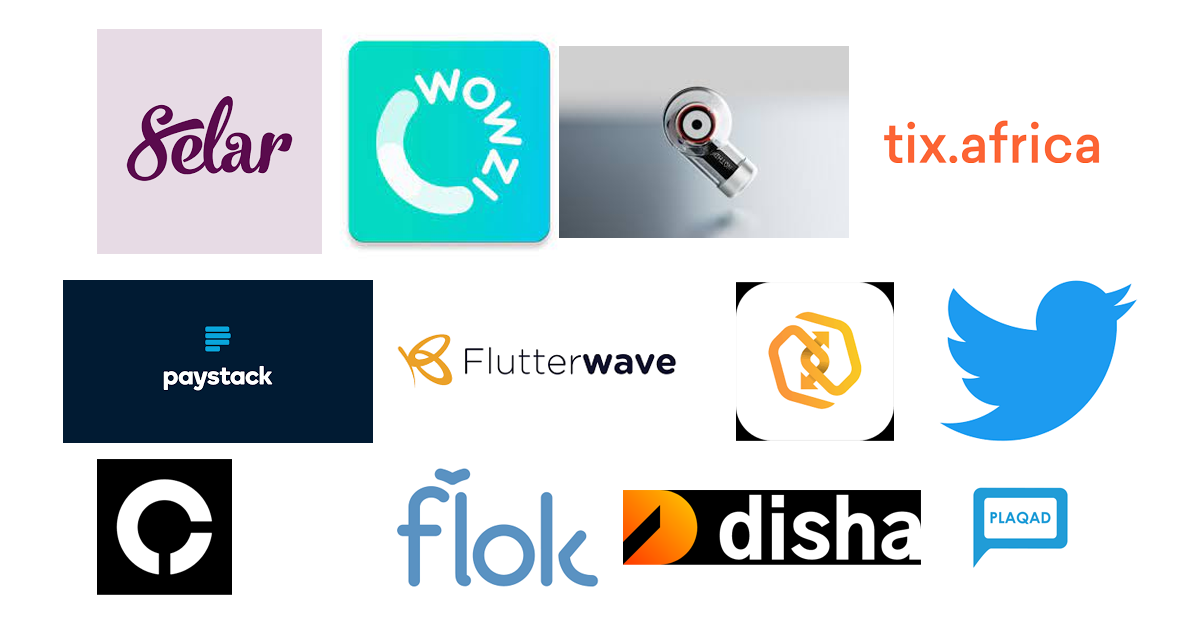African startups pioneering the Creator Economy

In an earlier piece, the African creator economy was analysed. In it, a creator was defined as well as amplifying the fact that the African continent is behind in the right resources to spread out fully if not to compete. Not just are African startups focusing on the creator economy lacking the necessary resources, but locals also seek bigger foreign platforms.
The creator economy has also been handicapped by the relative lag in the growth of other sectors such as edtech, fintech and information technology (IT). While the usage of smart devices in sub-Saharan Africa was on the low prior to 2020, the COVID-19 pandemic allowed for a surge in creators as there was a corresponding increase in mobile phone acquisition and internet dependence.
In this sequel, some of the African creator startups are brought to the limelight.
Selar
Founded in 2016 by Douglas Kendyson, Selar is an e-commerce platform allowing users to sell their digital products including e-books, music etc. Since its launch, it has acclaimed over 300,000 users and paid more than $6,000,000 to 55,000 creators. By hosting programs including training, the startup is moving towards eliminating the bridge between it and its creators. It has enabled payments in different currencies with integrated platforms like Paypal, MPesa, Stripe, and Verve, among others.
Wowzi
Kenyan startup founded by Mike Otieno, Hassan Bashir and Brian Mogeni in 2019 is leveraging social media marketing by connecting social media users with brand influencers. Acclaimed “Africa’s most powerful creator commerce platform”, the startup has spread across 7 African countries according to information from its website. Its 80,000 creators cover Nano (250 – 5,000 followers); Micro (5,001 – 30,000 followers); Macro (30,001 – 100,000 followers); Meta (100,001 – 500,00 followers); Mega (500,001+ followers).
ear1
Since it announced its $520,000 pre-seed in 2021, the Ghanaian-founded startup has not been in the news. With a chat feature. Influencers can sign in on ear1 to allow people to speak with them. “Our goal is to align incentives around network connections. People with serious messages for top professionals and celebrities can now get their messages across faster by paying to talk to them,” founder and CEO, Atsu Davoh said during the raise. According to information from Digital Times Africa, the startup compared with “Cameo” is still in beta testing.
Tix Africa
“Made for Creators” written boldly on its home page, Tix provides tools needed for event creators including ticket sales and promotion, virtual event or class hosting, email marketing etc. Founded in 2019 by Folayemi Agusto and Nosa Oyegun, the platform also enables flexible payment options in its drive to promote a cashless society.
Paystack
Pan-African payments company commenced operations in 2016 in Nigeria. The now-acquired company was set up by Nigerian founders, Shola Akinlade and Ezra Olubi. It recently committed to the creator economy by launching a store, Paystack Storefronts to enable the sale of digital products. With diverse and attractive options like chatting with customers on Whatsapp feature, African customers can upload any type of digital product to sell.
Related: Backend Stories: Meet the founder who paid over $6 million to users without any fundraising
Startups including P2P payments platform, Honeycoin and pan-African, Flutterwave have also integrated features to provide access for customers to launch their digital products. Honeycoin was founded in 2020 by David Nandwa while Flutterwave was founded in 2016 by Iyinoluwa Aboyeji, Olugbenga GB Agboola (CEO) and Adeleke Adekoya.
It is albeit rare to see startups as this, considering that most creator platforms venture to build products that need to embed payments. Given this progress, Africans can get payments from any choice country, limiting problems arising from the lack of payments common to the industry.
To prevent the occurrence of this, when Twitter launched Tip Jar in 2021, it chose an African fintech company, Chippercash to conduct payments for creators in Africa.
A lot of tools are helping creators get paid, but Africa is often ( if not always ) left out
?? Tiktok creator fund isn't available for African creators even with more than 30 million users
?? Payments options on Patreon, Facebook, or IG not adapted for African market
— CAPTAIN FLICKA (@MyleneFlicka) January 30, 2022
Other startups are community and flexible earning platform, Flok; link portfolio builder, Disha, acquired by Flutterave last year; and PR-tech platform, Plaqad, providing marketing for content creators among its other offerings.
African startups in the creator industry may be behind, however, with this limited list of innovative solutions, creators and the platforms need to strategise a way to work closely and enhance the indigenous strength, generating more capital from the youths who make up the creative space.
The Future of Jobs: A Glance Through The African Creator Economy